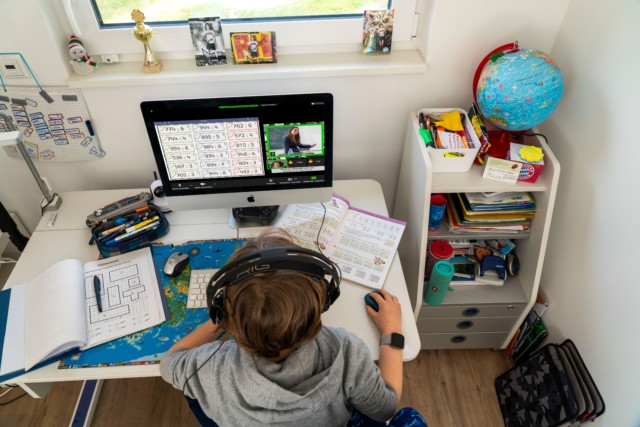RICHER kids spent a THIRD more time learning during lockdown than poor students, the Institute of Fiscal Studies has warned.
As the Government gets ready to reopen all schools in September, worrying new research has showed the urgency to give poor students a chance to catch up.
The IFS found that the richest primary school pupils spent around 75 minutes more per day on school work than those in the least well-off households.
The research found there was a “sizeable” difference in the time spent learning for primary school pupils.
For secondary school children the gap was “no greater than it was” before the lockdown.
All students were learning less at home overall, the research found.
The average primary school student was only spending 4.5 hours on a typical day during lockdown – compared to six hours when they’re in a classroom.
Secondary school pupils saw a similar drop in time spent learning, down 32 per cent from 6.6 hours at school to 4.5 hours a day at home.
Boris Johnson has said it is the nation’s “moral duty” to get all kids back to school by September 7 because of the profound impact on children’s education and wellbeing.
He has repeatedly vowed that nothing will get in the way of getting students back in classrooms.
The IFS said: “For primary school children, the lockdown has created new inequalities in learning time.
“Before the pandemic, there was essentially no difference between the time that children from the poorest and richest households spent on educational activities.
“But, during the lockdown, learning time fell by less among primary school children from the richest families than among their less well-off peers.
“The end result is that, during the lockdown, the richest students spent 75 minutes a day longer on educational activities than their peers in the poorest families – an extra 31% of learning time.”
MIND THE EDUCATION GAP
The IFS has said the lockdown widened already entrenched learning gaps.
The research found there were “much deeper roots” and richer pupils were spending around an hour a day more time one education than their poorer peers even before lockdown.
Learning resources available to poor kids were harder to come by as well, the research found.
Around 42 per cent of the poorest fifth of students had “some sort of active learning support from their school”.
That compares to 58 per cent for the richest fifth of students.
Researchers said: “A similar gap exists for secondary school pupils, with 51% of the poorest fifth of pupils getting some sort of active resource compared with 68% of the richest fifth.”
Research Economist at the IFS Angus Phimister warned: “Unfortunately ramping up efforts to equalise the home learning experience through the levers available to schools and policy makers – such as providing children from poorer families with better learning materials and support from school – is unlikely to improve the situation significantly.
“There seem to be few alternatives, if any, that are anywhere near as effective as re-opening schools for tackling growing educational inequalities.”
The education inequality of kids was laid bare when A-level results initially given to students unfairly downgraded more poor kids.








